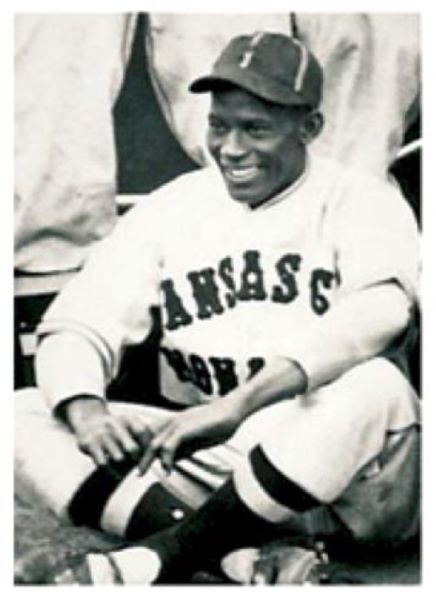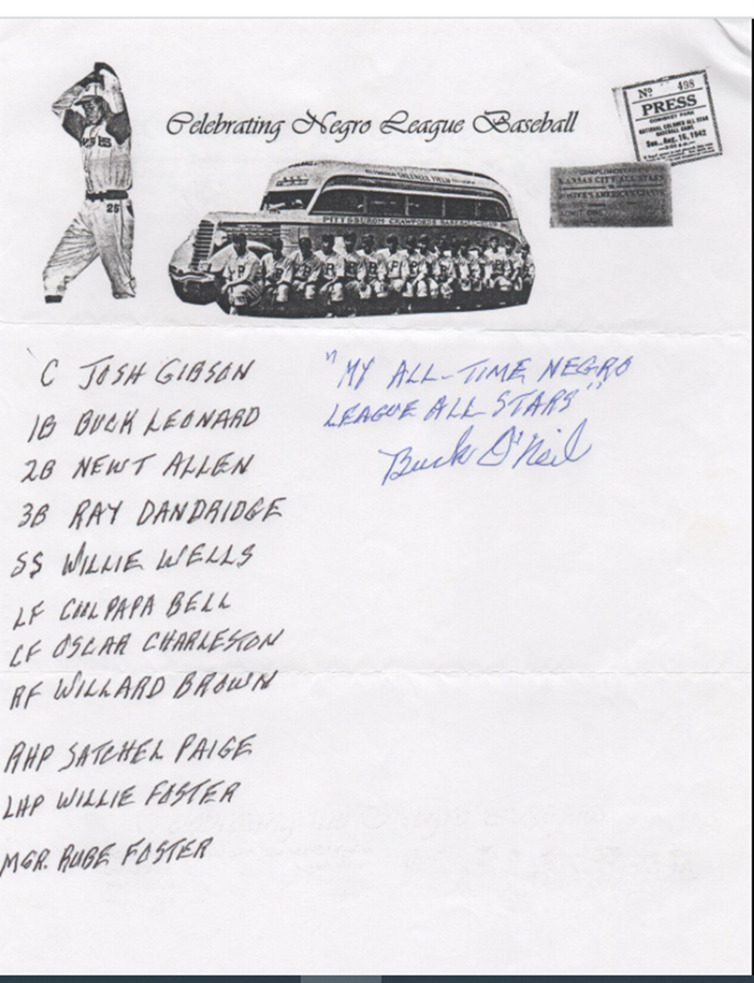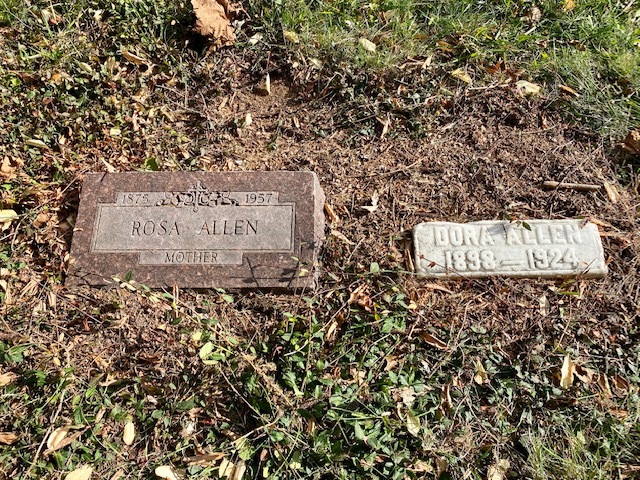Newt Allen Jr., a Negro Leagues baseball legend

Considered to be the best second baseman in the Negro League History.
Early Life
Newt Allen Jr. was born May 19, 1901, in Austin, Texas . His parents were Newton and Rose (Baker) Allen. After the death of his father, his mother Rose picked up and moved to Cincinnati, Ohio with four children. A short time later Newt visited his aunt Ophelia in Kansas City. His aunt had recently lost a young son and the way things worked out Newt’s visit to Kansas City never ended. His auntie brought young Newt into her home and adopted him.
Enter Baseball
Newt grew up in the historic black neighborhood of 18th and Vine in Kansas City -- coincidentally very close to the current site of the Negro Leagues Baseball Museum. It was on the streets and sandlots of Kansas City that Newt Allen Jr. discovered his calling.
His ability was recognized and in 1922, when he earned a spot on J.L. Wilkinson’s All-Nations team (an early integrated barnstorming team). J.L. Wilkinson also owned the famous Kansas City Monarchs, a charter member of the Negro National League, that formed in 1920. Wilkinson used the All-Nations team as a farm club.
The Monarchs
Newt Allen was called up to the Monarchs at end of the 1922 season and by 1924 he was the regular second baseman for the NNL Kansas City Monarchs. Newt Allen was never described as a “natural.” He was known for his hard work and hustle. He mastered bunting and terrorized opposing infielders with aggressive tactics on the basepaths. Allen put in the work to become an excellent fielder on the Monarchs team and went on to help them win the first ever Negro League World Series (against the Hilldale Club of the Eastern Colored League) in 1924.
Hard work, consistency, competitiveness, and loyalty to the Monarchs was the team captain’s calling card. He spent most of his 25-year career as a KC Monarch with brief stints on other teams later in his career. Newt played alongside Hall of Famers Joseph “Bullet” Rogan, Andy Cooper and Buck O’Neil. Later in his career he also played with and managed Hall of Famers Satchel Paige, Willard Brown and Hilton Smith. Newt retired from the Kansas City Monarchs in 1944, but in 1945 he evaluated Jackie Robinson.
Retirement and Recognition
Newt figured Jackie might flourish as a second baseman. Buck O’Neil said, “ [he] never saw a second baseman with as good an arm as Newt Allen.” Legendary New York Giant Manager John McGraw said, “Allen is one of the finest infielders, white or colored, in organized baseball.”
Newt Allen had an amazing career in the Negro Leagues. Along the way he played baseball in Cuba and Mexico during the winter. He even toured China, Japan, and the Philippines as a member of an “All-Star team.” Newt Allen had a swan song as manager of the barnstorming Indianapolis Clowns in 1947 and then finally retired from the game he loved. After retiring from baseball, he worked as a “repair foreman” in the Jackson County courthouse in Kansas City for many years. The Kansas City Star ran a short article about his retirement in 1976. Even though Newt had lived most of his life in Kansas City -- as an elderly gentleman he moved to Cincinnati --where he had some family. Newt lived with David Allen (assumed to be his half-brother) in East Walnut Hills.
Eventually Newt Allen moved into the Golden Age Care nursing home. Newt Allen died of a heart attack on June 9th of 1988. Newt Allen was buried next to his mother at the Union Baptist Cemetery. Newt Allen was considered for induction into the baseball Hall of Fame in 2006 by special committee.
Newt the All-Star
Buck O’Neill named Newt Allen to his all-time Negro League All-Star team. Every player on Buck’s list has been inducted into Cooperstown, except for Newt Allen. While Newt Allen has received recognition in terms of being admired by his peers, named an “All-Star,” and even as a legitimate Hall of Fame candidate, until recently his burial place was unknown. When Newt Allen passed in 1988 there was no obituary published and there was no headstone. Years later when some researchers went looking for Newt Allens resting place, no record of where exactly he was buried at the Union Baptist Cemetery could be located.
It was during the Covid-19 epidemic in 2021 that local history buff Chris Hanlin, who had already done a lot of work documenting African American cemeteries in Cincinnati, answered this author's request for assistance and managed to find the record at Union Baptist Church showing precisely where Newt Allen was buried.Those familiar with Negro League baseball history knew that it would only be a matter of time before a grave marker was placed on Newt Allen Jr’s grave.
A committee of baseball historians formed the Negro Leagues Grave Marker Project back in 2003 to make sure that the resting places of Negro League baseball players are remembered. (Newt Allen isn’t the only Negro League legend to have been buried in an unmarked grave). A headstone for Newt Allen is going to be installed later on this year, with a dedication ceremony to be scheduled.
Images


